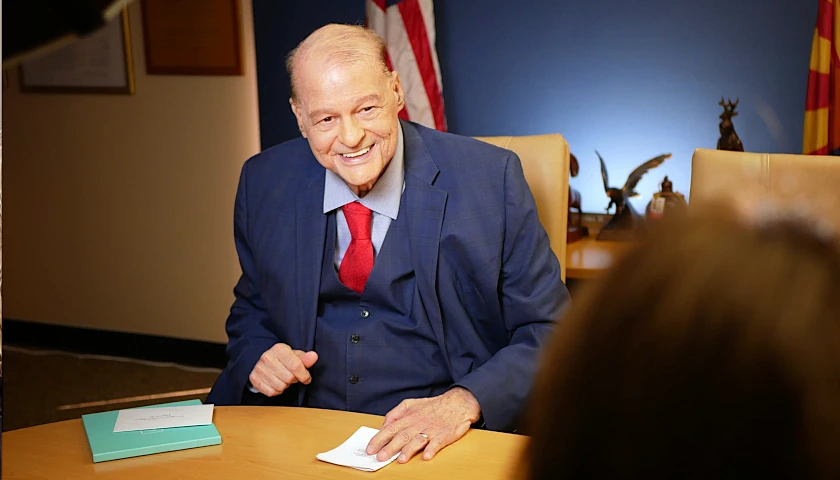by Casey Harper
The U.S. Federal Reserve Board announced another increase to the federal funds rate Wednesday, raising the target range to 5.25 to 5.5%, the highest rate in 22 years.
The Fed Board also left the door open to another hike.
“The Committee would be prepared to adjust the stance of monetary policy as appropriate if risks emerge that could impede the attainment of the Committee’s goals,” the board said.
Last month, the Fed did not raise rates, ending a spree of 10 consecutive rate increases. Inflation growth has slowed significantly, but prices still remain much higher than they were a few years ago.
Now, rates are on the rise again.
“Recent indicators suggest that economic activity has been expanding at a moderate pace,” the board said. “Job gains have been robust in recent months, and the unemployment rate has remained low. Inflation remains elevated.”
The increase in interest rates has made borrowing money and buying homes far more difficult for Americans. Economists generally agree that rate hikes help curb inflation but also hurt economic growth.
The Fed bases its decision on navigating those two interests, looking at the health of the economy and how it will withstand a rate increase.
Before the COVID-19 pandemic, The Feds’ key interest rate was 1% to 1.25%. Then, in March of 2020, the rate decreased even further to 0 to 0.25%.
After the pandemic, the federal government kicked trillions of dollars in relief and other spending and significantly increased the money supply, helping spike prices nationwide.
The U.S. banking sector experienced a scare after bank collapses earlier this year fueled in part by rate hikes. Experts raised concerns that more hikes could worsen the financial sector’s outlook as some banks feel the pain of costlier rates.
The Fed Board downplayed banking concerns.
“The U.S. banking system is sound and resilient,” the board said. “Tighter credit conditions for households and businesses are likely to weigh on economic activity, hiring, and inflation. The extent of these effects remains uncertain. The Committee remains highly attentive to inflation risks.”
– – –
Casey Harper is a Senior Reporter for the Washington, D.C. Bureau of The Center Square. He previously worked for The Daily Caller, The Hill, and Sinclair Broadcast Group. A graduate of Hillsdale College, Casey’s work has also appeared in Fox News, Fox Business, and USA Today.








